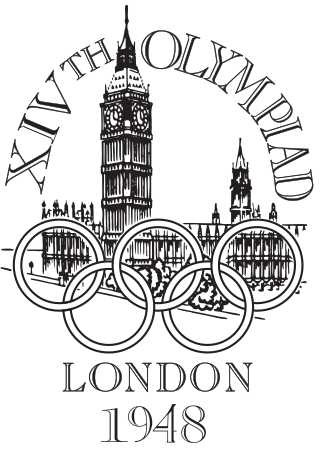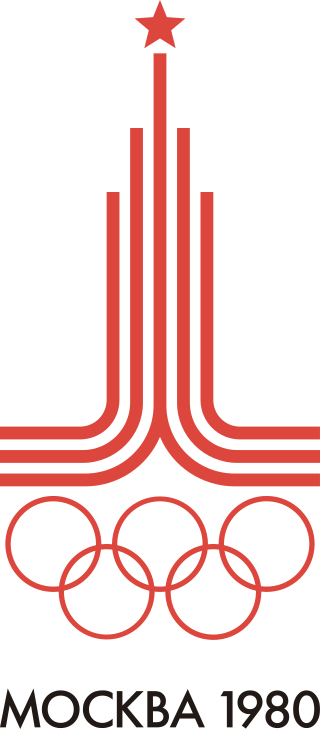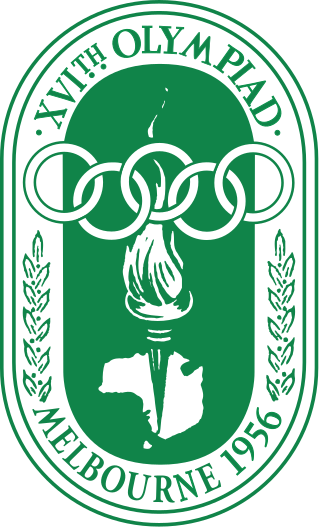
The modern Olympic Games are the leading international sporting events featuring summer and winter sports competitions in which thousands of athletes from around the world participate in a variety of competitions. The Olympic Games are considered the world's foremost sports competition with more than 200 teams, representing sovereign states and territories, participating. By default, the Games generally substitute for any world championships during the year in which they take place. The Olympic Games are held every four years. Since 1994, they have alternated between the Summer and Winter Olympics every two years during the four-year Olympiad.

The Summer Olympic Games, also known as the Games of the Olympiad, is a major international multi-sport event normally held once every four years. The inaugural Games took place in 1896 in Athens, Greece, and the current Games are being held in 2024 in Paris, France. This was the first international multi-sport event of its kind, organized by the International Olympic Committee (IOC) founded by Pierre de Coubertin. The tradition of awarding medals began in 1904; in each Olympic event, gold medals are awarded for first place, silver medals for second place, and bronze medals for third place. The Winter Olympic Games were created out of the success of the Summer Olympic Games, which are regarded as the largest and most prestigious multi-sport international event in the world.

A triathlon is an endurance multisport race consisting of swimming, cycling, and running over various distances. Triathletes compete for fastest overall completion time, racing each segment sequentially with the time transitioning between the disciplines included. The word is of Greek origin, from τρεῖς, 'three', and ἆθλος, 'competition'.

The Winter Olympic Games is a major international multi-sport event held once every four years for sports practiced on snow and ice. The first Winter Olympic Games, the 1924 Winter Olympics, were held in Chamonix, France. The modern Olympic Games were inspired by the ancient Olympic Games, which were held in Olympia, Greece, from 776 BCE to 394 CE. The Baron Pierre de Coubertin of France founded the International Olympic Committee (IOC) 1,500 years later in 1894, leading to the first modern Summer Olympic Games in Athens, Greece in 1896. The IOC is the governing body of the Olympic Movement, with the Olympic Charter defining its structure and authority. The original five Winter Olympic Sports were bobsleigh, curling, ice hockey, Nordic skiing, and skating. The Games were held every four years from 1924 to 1936, interrupted in 1940 and 1944 by World War II, and resumed in 1948. Until 1992, the Summer Olympic Games and the Winter Olympic Games were held in the same year. A decision to change this was made in 1986, when during the 91st International Olympic Committee session, IOC members decided to alternate the Summer Olympic Games and the Winter Olympic Games on separate four-year cycles in even-numbered years. Also, at that same congress it was decided that 1992 Winter Olympics would be the last to be held in the same year as the Summer Games and that to change the rotation, the games that would be held in 1996 would be brought forward by two years, being scheduled to 1994. After those games, the next were to be held in 1998 when the four-year Olympic Cycle resumed.

The 1948 Summer Olympics, officially the Games of the XIV Olympiad and officially branded as London 1948, were an international multi-sport event held from 29 July to 14 August 1948 in London, United Kingdom. Following a twelve-year hiatus caused by the outbreak of World War II, these were the first Summer Olympics held since the 1936 Games in Berlin. The 1940 Olympic Games had been scheduled for Tokyo and then for Helsinki, while the 1944 Olympic Games had been provisionally planned for London. This was the second time London hosted the Olympic Games, having previously hosted them in 1908, forty years earlier. The Olympics would return again to London 64 years later in 2012, making London the first city to host the games thrice, and the only such city until Paris and Los Angeles host their third games in 2024 and 2028, respectively. The 1948 Olympic Games were also the first of two summer Games held under the IOC presidency of Sigfrid Edström.

The decathlon is a combined event in athletics consisting of 10 track and field events. The word "decathlon" was formed, in analogy to the word "pentathlon", from Greek δέκα and ἄθλος. Events are held over two consecutive days and the winners are determined by the combined performance in all. Performance is judged on a points system in each event, not by the position achieved. The decathlon is contested mainly by male athletes, while female athletes typically compete in the heptathlon.

The 1896 Summer Olympics, officially known as the Games of the I Olympiad and commonly known as Athens 1896, were the first international Olympic Games held in modern history. Organised by the International Olympic Committee (IOC), which had been created by French aristocrat Pierre de Coubertin, the event was held in Athens, Greece, from 6 to 15 April 1896.
The modern pentathlon is an Olympic multisport that currently consists of fencing, freestyle swimming, equestrian show jumping, laser pistol shooting, and cross country running. Equestrian will be replaced by a form of obstacle course racing after the 2024 Summer Olympics.

The 2008 Summer Olympics, officially the Games of the XXIX Olympiad and officially branded as Beijing 2008, were an international multisport event held from 8 to 24 August 2008, in Beijing, China. A total of 10,942 athletes from 204 National Olympic Committees (NOCs) competed in 28 sports and 302 events, one event more than those scheduled for the 2004 Summer Olympics. This was the first time China had hosted the Olympic Games, and the third time the Summer Olympic Games had been held in East Asia, following the 1964 Olympics in Tokyo, Japan, and the 1988 Olympics in Seoul, South Korea. These were also the second Summer Olympic Games to be held in a communist state, the first being the 1980 Summer Olympics in the Soviet Union.

The 1980 Summer Olympics, officially known as the Games of the XXII Olympiad and officially branded as Moscow 1980, were an international multi-sport event held from 19 July to 3 August 1980 in Moscow, Soviet Union, in present-day Russia. The games were the first to be staged in an Eastern Bloc country, as well as the first Olympic Games and only Summer Olympics to be held in a Slavic language-speaking country. They were also the only Summer Olympic Games to be held in a socialist country until the 2008 Summer Olympics held in China. These were the final Olympic Games under the IOC Presidency of Michael Morris, 3rd Baron Killanin before he was succeeded by Juan Antonio Samaranch, a Spaniard, shortly afterwards.

The 1956 Summer Olympics, officially the Games of the XVI Olympiad and officially branded as Melbourne 1956, were an international multi-sport event held in Melbourne, Victoria, Australia, from 22 November to 8 December 1956, with the exception of the equestrian events, which were held in Stockholm, Sweden, in June 1956.

The 1900 Summer Olympics, today officially known as the Games of the II Olympiad and also known as Paris 1900, were an international multi-sport event that took place in Paris, France, from 14 May to 28 October 1900. No opening or closing ceremonies were held.

Athletics is a sport that includes athletic contests based on running, jumping, and throwing skills. The name used in North America is derived from where the sport takes place, a running track and a grass field for the throwing and some of the jumping events. Track and field is categorized under the umbrella sport of athletics, which also includes road running, cross country running and racewalking. In British English the term "Athletics" is synonymous with American "Track and Field" and includes all jumping events. Outside of Canada and the United States, Athletics is the official term for this sport with 'track' and 'field' events being subgroups of athletics events.

A heptathlon is a track and field combined events contest made up of seven events. The name derives from the Greek ἑπτά and ἄθλος. A competitor in a heptathlon is referred to as a heptathlete.

Swimming has been a sport at every modern Summer Olympics. It has been open to women since 1912. At the Olympics, swimming has the second-highest number of medal-contested events.

The 2020 Summer Olympics, officially the Games of the XXXII Olympiad and officially branded as Tokyo 2020, were an international multi-sport event held from 23 July to 8 August 2021 in Tokyo, Japan, with some preliminary events that began on 21 July 2021. Tokyo was selected as the host city during the 125th IOC Session in Buenos Aires, Argentina on 7 September 2013.

Athletics has been contested at every Summer Olympics since the birth of the modern Olympic movement at the 1896 Summer Olympics. The athletics program traces its earliest roots to events used in the ancient Greek Olympics. The modern program includes track and field events, road running events, and race walking events. Cross country running was also on the program in earlier editions but it was dropped after the 1924 Summer Olympics.

Gymnastics events have been contested at every Summer Olympic Games since the birth of the modern Olympic movement at the 1896 Summer Olympics in Athens. For 32 years, only men were allowed to compete. Beginning at the 1928 Summer Olympics in Amsterdam, women were allowed to compete in artistic gymnastics events as well. Rhythmic gymnastics events were introduced at the 1984 Summer Olympics in Los Angeles, and trampoline events were added at the 2000 Summer Olympics in Sydney.

Tennis was part of the Summer Olympic Games program from the inaugural 1896 Summer Olympics, but was dropped after the 1924 Summer Olympics due to disputes between the International Lawn Tennis Federation and the International Olympic Committee over how to define amateur players. After two appearances as a demonstration sport in 1968 and 1984, it returned as a full medal sport at the 1988 Summer Olympics open for all players regardless of their age and status and has been played at every summer Games since then.

Michael Fred Phelps II is an American former competitive swimmer. He is the most successful and most decorated Olympian of all time with a total of 28 medals. Phelps also holds the all-time records for Olympic gold medals (23), Olympic gold medals in individual events (13), and Olympic medals in individual events (16). At the 2004 Summer Olympics in Athens, Phelps tied the record of eight medals of any color at a single Games, held by gymnast Alexander Dityatin, by winning six gold and two bronze medals. Four years later, when he won eight gold medals at the 2008 Beijing Games, he broke fellow American swimmer Mark Spitz's 1972 record of seven first-place finishes at any single Olympic Games. At the 2012 Summer Olympics in London, Phelps won four gold and two silver medals, and at the 2016 Summer Olympics in Rio de Janeiro, he won five gold medals and one silver. This made him the most successful athlete of the Games for the fourth Olympics in a row.

















